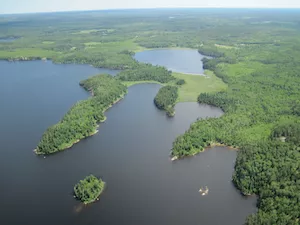
Food web rewiring in a changing world
Climate change is leaving a complex human fingerprint around the globe, in part because climate change effects are uneven in space, with some habitats, ecosystems, and even hemispheres changing more than others. In our Perspective recently accepted in Nature Ecology & Evolution, we show that these uneven climate change effects are predictably reorganizing food webs around the globe. Previous research has shown that as species are redistributing towards the poles, they are adding new connections in food webs. We highlight a second way that food webs are ‘rewiring’: changes in the flows of energy and carbon through existing food web connections. Because many animal species navigate across the landscape to forage, many of these animals—from polar bears in the Arctic to spiders in temperate grasslands—rapidly respond through their behavior when some habitats or ecosystems are more altered than others. These shifts in the relative use of habitats and ecosystems changes how much these species are foraging on these different energy sources. Importantly, we also show that groups of species with shared traits, such as a preference for cold water, exhibit unified behavioral responses to climate change. Our work suggests that we can use animal’s behavior to monitor the looming impacts of global climate change on entire ecosystems.
Congratulations to Timothy Bartley (Post Doc) from Bailey McMeans Lab (UTM) and Kevin McCann Lab (UGuelph)!
